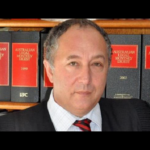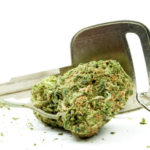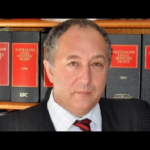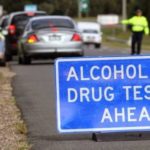Drug Driving Offences: Queensland Adds Cocaine to the List of Drugs Tested
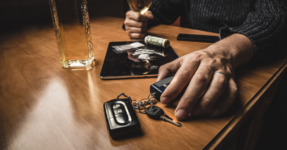
Cocaine has been added to the list of drugs that will now be detected by roadside drug tests in Queensland.
The addition of cocaine brings Queensland in line with New South Wales – with cocaine being part of Mobile Drug Testing (MDTs) in New South Wales since 2018.
Queensland penalties
In Queensland, the penalties that apply to driving with the presence of an illicit substance such as cocaine, cannabis, speed, ice or ecstasy include:
- A disqualification from driving for between 1 to 9 months,
- A fine of up to $2,167, and/or
- A prison term of up to 3 months.
The penalties are more severe for subsequent offences.
Queensland police conduct about 50,000 random roadside drug tests every year and the statistics show that about a quarter of motorists tested will return a positive result for illicit drugs.
Cocaine use is on the rise across Australia
Queensland has introduced cocaine to its roadside testing regime after statistics showed that a significant number of serious crashes in recent years have involved drivers testing positive for cocaine.
Numbers also show that in 2022, 61 people died as a result of crashes that involved a drug-affected driver or rider, equating to 20% of the road toll.
Despite recent price hikes, cocaine is really no longer only a drug of choice for the rich and famous – it is much more prevalent with waste water (sewage) testing showing that its use has increased across the nation with many Australians consuming cocaine randomly as a party drug, as well as to simply ‘get through the day’.
According to the research, the use of cocaine has the potential to adversely impact on driving ability by inducing a feeling of overconfidence and thereby lead to greater risk taking, and potentially causing scattered concentration.
Mobile Drug Testing in New South Wales
In New South Wales, police random roadside tests are designed to detect:
- THC (cannabis),
- Methylamphetamine (speed/ice),
- MDMA (ecstasy), and
- Cocaine
Mobile drug testing process in New South Wales
Under the Road Transport Act 2013, police have the right to pull over any vehicle and ask a driver to submit a saliva test (a ‘lick test’).
If a driver tests positive to a roadside drug test, he or she is placed under arrest and taken to a police station or another testing facility for a secondary swab.
If the second test comes back positive, police will issue a suspension from driving for a period of 24 hours.
The secondary sample will then be sent to a government testing laboratory and, if the positive reading is confirmed, the driver will be issued with a court attendance notice and sent to court for drug driving.
The offence of drug driving in New South Wales
Drug driving is also known as driving with the presence of an illicit substance and is an offence under section 111 of the Road Transport Act 2013 (NSW).
To establish the offence, the prosecution must prove beyond reasonable doubt that:
- You drove a motor vehicle, or occupied the driver seat of a motor vehicle and attempted to put the vehicle in motion, or you were a full driver licence holder and occupied the passenger seat while a learner driver was driving, and
- An illicit drug was present in your oral fluid, blood or urine at the time.
What are the defences to drug driving in New South Wales?
There are a number of legal defences to drug driving charges, including:
- Honest and reasonable mistake – which is where you genuinely did not know an illicit substance was in your system at the time of driving and your belief was reasonable taking into account all of the circumstances,
- Necessity – which is where you drove to avoid imminent serious danger, and
- Duress – which is where you drove because you or someone close to you was threatened or coerced into doing so, the threat was serious and ongoing and your actions were reasonable in the circumstances.
An experienced traffic defence lawyer will be able to advise you regarding whether the prosecution is likely to be able to establish the requirements of the offence beyond a reasonable doubt, as well as whether a legal defence may be available to you.
If there are issues with the prosecution case, your lawyer will be able to formally request the withdrawal of the charge or, if the prosecution refuses, fight for an acquittal in court; in other words, for a not guilty verdict.
What are the penalties for drug driving in New South Wales?
Since 20 May 2019, police have been given the power to issue a penalty notice (a fine, which is currently $603) and impose a 3-month driver licence suspension upon those who drive with an illicit substance in their system, rather than send them to court.
If police instead choose to send the matter to court, or you ‘elect’ (choose) the contest the penalty notice in court, the maximum penalties that apply are as follows:
If it is your first ‘major traffic offence’ in the previous 5 years:
- An ‘automatic’ licence disqualification of 6 months which the magistrate can reduce to a ‘minimum’ of 3 months, and
- A fine of up to $1,100.
If it is your second or subsequent ‘major traffic offence’ in the previous 5 years:
- An ‘automatic’ disqualification of 12 months which the magistrate can reduce to a minimum of 6 months, and
- A fine of up to $2,200.
However, there will be no criminal conviction, disqualification or fine if the magistrate is persuaded to grant a Section 10(1)(A) Dismissal, or a Conditional Release Order Without a Conviction.
To maximise your prospects of avoiding a criminal record and licence disqualification, or receiving a more lenient penalty than you may otherwise have been given, it is a good idea to prepare character references and a letter of apology, and also consider undertaking a traffic offender program.
An experienced traffic lawyer will be able to guide and assist you, as well as those who are able to provide you with character references, in reviewing the documents to ensure they will be of the greatest assistance in court, in referring you to a program should you wish to undertake one, and of course thoroughly preparing and persuasively presenting your case in court.
Going to court for drug driving?
If you are going to court for drug driving, call Sydney Criminal Lawyers anytime on (02) 9261 8881 to arrange a free first conference during which one of our expert traffic lawyers will provide you with accurate advice about your case, your options, the best way forward and fight for the optimal outcome.
We offer fixed fees for all drug driving cases.



